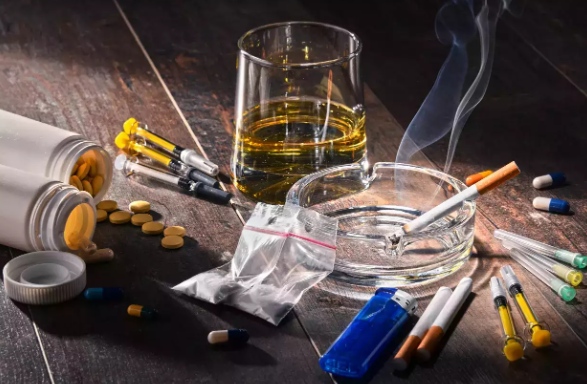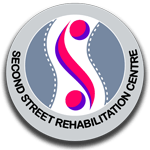Best De-Addiction Center in Mumbai

What is drug addiction
Why you need de-addiction
- Intense cravings or compulsions to take drugs while being aware of the dangers it may pose.
- Absence of control over drug usage
- Devoting excessive time to obtaining, consuming, or recovering from drug effects.
- Taking drugs while undertaking hazardous activities, such as driving a vehicle, is dangerous.
- Reducing one’s participation in activities, hobbies, or interests, giving them up, or doing both.
Symptoms
- Paranoia
- Aggressiveness
- Hallucinations
- Addiction
- Impaired Judgement.
- Impulsiveness
- Loss of Self-Control
Impact of drug addiction on personal/social and professional life
- Drug users may even become hostile and violent toward their friends and family.
- Drug users may have relationship paranoia, such as the notion that their friends betray them.
- Addicts usually experience one or more co-occurring medical conditions, such as lung or heart disease, stroke, cancer, or mental health problems.
- They also experience a high rate of violence, criminality, and homelessness.
Data
- Over 36 million people experienced drug use problems last year, whereas over 275 million people took drugs globally (UNODC).
- The number of drug users increased by 22% between 2010 and 2019 due in part to the growing world population.
- Current forecasts indicate an 11% increase in drug users worldwide by 2030 based only on demographic changes (WHO).
- The most recent estimates indicate that 5.5% of people between the ages of 15 and 64 have used drugs at least once in the past year and that 36.3 million people, or 13% of all drug users, have a drug use disorder (NSUDH).
- Drug usage causes 11.8 million deaths annually, both directly and indirectly. The use of tobacco, alcohol, and drugs increases the risk of early death, which results in 11.4 million premature deaths annually (UNODC).
- Each year, overdoses from alcohol and illicit substance use disorders result in approximately 350,000 fatalities. In men, substance use disorders are far more prevalent (DRUGABUSE).
What is de-addiction?
How we do it
Stage of Pre-Contemplation
Addicts in the early stages of recovery from addiction are not yet prepared for any type of addiction treatment program. Defensiveness and constant rationalization of their actions define this stage. There is a glaring lack of understanding regarding the harmful repercussions of excessive drug or alcohol usage and a heavy emphasis on the advantages of consuming their preferred drug. Stage of Contemplation
Contemplative preparedness phase
This indicates that the individual is prepared to affect future change, just not immediately. In contrast to the earlier stage, they know the benefits of giving up drugs
Planning Stage
In the planning stage, the person is increasing their sense of urgency to their desire for sobriety. They’ve typically taken steps in the direction of action.
Activity Phase
The person is dedicated to change and has made major adjustments in their lives during the action stage. Long-term abstinence and a propensity to seek professional assistance before or after relapse are characteristics of this stage of change.
Continuity Stage
The person puts a lot of effort into avoiding relapse during the maintenance stage of addiction recovery. They continue to maintain the lifestyle adjustments they make. Depending on the extent of the addiction, the person’s genes, and experience, this stage can last anywhere between six months and five years.
Why us
- We have observed success due to the process and the period you spend doing the de-addiction
- We also provide you with a built-in support system so that you always have someone to turn to for assistance.
- You get the required service (to quality), making the de-addiction process easy and seamless.
FAQs
Chronic stress, a history of trauma, mental illness, and a family history of addiction are the most frequent causes of addiction. You can lessen your risk of developing an addiction by being aware of how these can result in long-term substance abuse and addiction.
Using empathy, education, and understanding to combat the stigma of substance use disorder is a key component of a successful drug addiction treatment program. The three pillars of therapy, support, and education are well-aligned with these.
Drug misuse warning indicators in the human mind. Sudden mood changes, irritation, spaced-out behavior, or angry outbursts are all signs of an unexplained shift in personality or attitude. Lastly, one appears unduly afraid, nervous, or paranoid.
Addicts are unable to regulate their behavior. They will do anything to obtain drugs, alcohol, or other substances, including jeopardizing their friendships, families, or careers.
